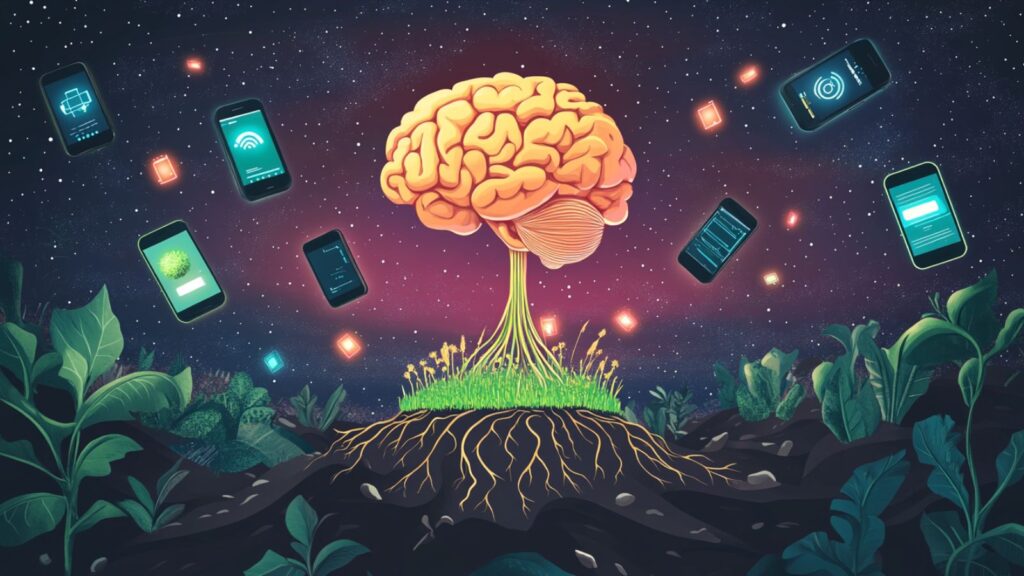In 1995 Tony Wright self-experimented with sleep deprivation. On his third day awake, he perceived that his brain’s left hemisphere had gone to sleep, allowing, for the very first time, his right hemisphere free-reign over all of his functions. His experience, lasting only 20 minutes was so profound that in part, it clarified a hypothesis that became Left in the Dark over 12 years later. As new evidence has compiled in his favour, the book is deservedly getting another springboard by Inner Traditions and is due for release in America this week, under the somewhat groundhog title Return to the Brain of Eden.
The general hypothesis is that the dominant left hemisphere of our brains has been subject to alarming damage since leaving the forests of our genesis. This means that the more deluded, less compassionate part of our brain is in control. Wright strives to get to the root of what he deems as a human-scale issue, as tempting as it has been to point the finger at bankers, the Illuminate or the industrial military complex. The news of our own retarded left brain at the helm is the most morbidly entertaining and disturbing part of the thesis. Indeed, it may seem obvious to keen observers of human calamity, but Wright and co-author Graham Gynn look inwards to our physiology and deep into the past for some real answers.
The main argument is that for millions of years in the ancient forests, our brains were being ‘flooded’ with the rich hormones and biochemistry of our main food source: fruit. This vibrant flesh in all its forms was the very thing that primed the homo sapient line. Indeed the book’s exploration our potential, ancient frugivorous relationship is both wondrous and revealing. The key is that ingesting fruit could have helped boost human brain growth by steroid suppression. ‘We now know that the brain affects the hormone system, which in turn regulates the DNA reading, which in turn determines the animal’s structure and the mechanism of construction’ state Wright and Gynn. They also draw on profound hormonal effects on the foetus in the uterine environment and an extended juvenile period as a possible cause of higher (human) brain function.
Indeed no rock or root is left unturned. Wright and Gynn take us on a journey through the earliest primate and hominid environments, to the potential catastrophes or floods that either bolstered our adaptations for the better or led us to evolutionary dead-ends. Then deep into evidence of our nutritional needs and short comings, brain mechanisms, human potential and consciousness to name but a few. The latter half of the book underpins the perturbing problems of left dominance but also highlights the great potential of the untapped right. For example, they highlight that many quantum leaps in scientific discovery have arisen in dreams and daydreams (Nobel Prize winner Kary Mullis and his DNA daydream springs to mind although the book gives many other examples). This all seems possible if we learn how to ‘release the controlling aspects of linear function that occurs during states of revelry’ say Wright and Gynn. They speculate that such creative breakthroughs and dreamlike states come from the (usually dormant) right-brain.
Even more edifying is that millions of years of eating steroid suppressing fruit could give rise to a more highly functioning pineal gland as it produced more melatonin and MAO (monoamine oxidase) inhibitors. The significance of MAOI’s relating to the activation of endogenous DMT (dimethyltryptamine) and rich epiphenomenon are also explored in relation to the theory. It seems quite possible that the ecstatic state Tony experienced temporarily in 1995 was a constant and palpable reality to the earliest humans. No wonder then that Return embraces overarching parallels to golden age myths and theological fingers pointing to the great ‘Fall of Mankind’. So in a sense this book attempts a scientific parallel to what the traditions have emphasised for centuries.
Wright considers that meditation and other yogic practices are, by themselves, insufficient to reverse this cerebral seesaw and unify the hemispheres. We are also acting in vain by merely changing to a raw food and fruit diet. It’s more likely that a combination of the former two, including more consistent practice of right brain endeavours, such as art, music and deep reflective thought, over many years, will offer hope.
Despite the logic of the hypothesis, it will prove a hard sell as it threatens our comfortable indifference to what we put in our bodies. Some orthodox scientists may roll their eyes and scoff but Tony (ever wary of his own left brain gremlins) would argue that it is their left brain at the helm, preventing them from putting it all into context. In fact academic high regard for reductionism and isolated experimentation speaks for itself. If one is dubious about the overall theory, it nevertheless offers a wide-eyed reassessment of the fuel the body needs to function at its best. We can certainly gather that Junk food plays a huge role in exacerbating a rapid decline in neural function and overall health.
Return covers a lot of ground and weaves plenty of supporting scientific data into the mix. This includes a keen and just forward by Dennis McKenna which resonates to the book’s real potential for truth. Open your heart and mind to the hypothesis and it does give off an impassioned zing, like it’s re-wiring you into the real matrix of ancestral memory. It is without doubt a feat of both context and detail, holding precedent to this new criterion of holistic investigation.
Tony Wright will be joining host Dennis McKenna for the live, interactive video course, “What Plants Can Teach You: Consciousness and Intelligence in Nature.” This 5-part Evolver webinar starts this Tuesday, June 17. A new paradigm is emerging that recasts how we relate to and understand nature, supported by new scientific evidence. Plants instruct us through their behavior, through their interdependence with the environment, and through direct transmissions conveyed by spirit. Along with Tony and Dennis, the course gathers some of the leading experts in the emerging field of plant intelligence, including: Chris Kilham, Simon G. Powell, Dayna Baumeister, and Stephen Harrod Buhner. Click here to learn more.














